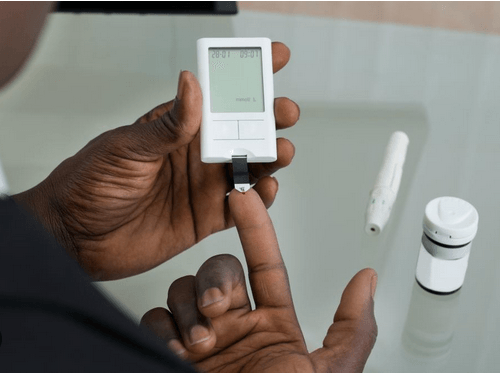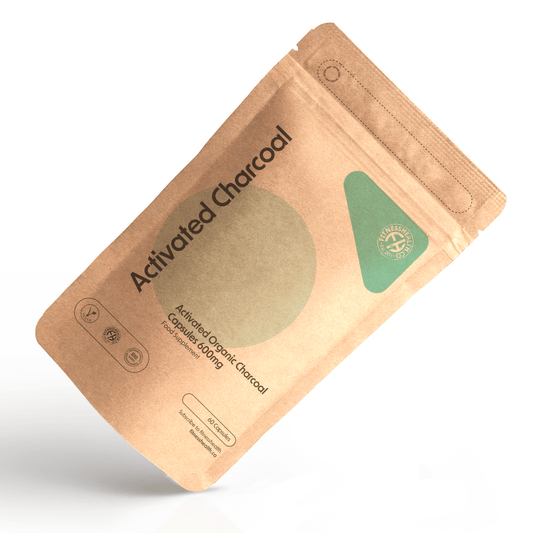There are two main types of diabetes: type 1 and type 2.
Insulin is a hormone that helps regulate blood sugar level. People with type 1 diabetes require lifelong insulin therapy to manage their blood sugar levels.
Type 2 diabetes is more common and is characterized by insulin resistance, where the body's cells become less responsive to insulin. This leads to elevated blood sugar levels. Type 2 diabetes is often associated with lifestyle factors such as obesity, sedentary behavior, unhealthy diet, and genetics. It can often be managed through lifestyle modifications including regular exercise, a balanced diet, weight management, and medication if necessary.
Diabetes can have serious health consequences if not properly managed. It can lead to complications such as cardiovascular disease, kidney damage, nerve damage, vision problems, heart disease and an increased risk of infections.
To maintain good health with diabetes, it is important to prioritize regular physical activity.
Additionally, maintaining a healthy diet is crucial for managing diabetes. Limit the intake of processed foods, sugary beverages, and high-sugar snacks. Monitoring carbohydrate intake and portion control can also help manage blood sugar levels.
Monitoring blood sugar levels, taking prescribed medication as recommended by healthcare professionals, and regular check-ups are essential for proper diabetes management. It is important to work closely with a healthcare team that may include a doctor, nurse, dietitian, and diabetes educator to develop an individualized plan that suits your specific needs.
Overall, diabetes is a chronic condition that requires ongoing management, but with the right lifestyle choices and medical support, individuals with diabetes can live healthy and fulfilling lives.
Diabetes Risk Factors
More than half of Americans are affected by prediabetes and many people who have Type I and Type II diabetes do not know about it. Diabetes risks are primarily managed through lifestyle changes. This is called modifying risk. All of these risk factors cannot be changed without permission.

Several risk factors contribute to the development of diabetes. These include:
1. Family History: If you have a family history of diabetes, particularly in immediate family members such as parents or siblings, your risk of developing the condition increases.
2. Obesity: Being overweight or obese significantly raises the risk of developing type 2 diabetes. Excess body fat can impair the body's ability to use insulin effectively, leading to insulin resistance and elevated blood sugar levels.
3. Sedentary Lifestyle: Lack of physical activity and a sedentary lifestyle contribute to the development of diabetes. Regular exercise helps maintain a healthy weight, improves insulin sensitivity, and aids in the regulation of blood sugar levels.
4. Unhealthy Diet: Consuming a diet high in processed foods, sugar, unhealthy fats, and low in fruits, vegetables, and whole grains can increase the risk of developing diabetes. Poor dietary choices can lead to weight gain, insulin resistance, and elevated blood sugar levels.
5. Age: As individuals age, their risk of developing diabetes increases. This is especially true for type 2 diabetes, which is more common in older adults.
6. Gestational Diabetes: Women who have had gestational diabetes during pregnancy have a higher risk of developing type 2 diabetes later in life.
7. High Blood Pressure and Cholesterol: Having high blood pressure or high cholesterol levels can increase the risk of developing diabetes. These conditions can contribute to the development of insulin resistance and affect overall blood sugar control.
8. Ethnicity: Certain ethnic groups, such as African Americans, Hispanics, Native Americans, and Asian Americans, have a higher risk of developing diabetes compared to others.
Risk factors
Risks vary by type of diabetes. Family histories have an impact on almost everything. Several environmental factors may increase the risks associated with type I diabetes. Some family members of diabetic individuals may undergo autoantibody tests. When a person has these autoantibodies, he has a higher chance of developing Type 1 diabetes. However, not everyone with these autoantibodies develops diabetes. Race or ethnicity are also linked to your increased chances of diabetes. Although the reasons for these increases are unclear, some people are in increased danger. To mitigate the risk of diabetes and promote fitness and health, it is essential to adopt a proactive approach. Regular physical activity, such as aerobic exercises, strength training, and flexibility exercises, can improve insulin sensitivity and help maintain a healthy weight. Incorporating a balanced diet that focuses on whole foods and limits processed and sugary foods can also help prevent or manage diabetes.
They can provide personalized guidance and recommendations based on individual risk factors and health goals.
Remember, prevention is key, and leading a healthy lifestyle that includes eating healthy foods regular exercise, a balanced diet, and maintaining a healthy weight can significantly reduce the risk of developing diabetes and promote overall fitness and health.
Type 1 diabetes
Type 1 diabetes is characterized by deficient insulin production and requires insulin daily administration. In 2017, there were 92 million people with Type 1 diabetes, a major proportion of whom are living in wealthy countries. The reasons behind the outbreak and its prevention have never been established. When it comes to fitness and health for individuals with Type 1 diabetes, there are several important considerations to keep in mind.
First and foremost, it is crucial to consult with a healthcare professional, such as a doctor or a certified diabetes educator, before starting any new exercise or fitness routine. They can provide personalized guidance and help you develop a plan that is suitable for your specific needs and health condition.
Here are some tips to help manage fitness and health with Type 1 diabetes:
1. Blood Sugar Monitoring: Regularly monitoring your blood sugar levels before, during, and after exercise is essential. This will help you understand how physical activity affects your blood sugar levels and allow you to make any necessary adjustments, such as adjusting insulin doses or carbohydrate intake.
2. Balance Blood Sugar: Maintaining stable blood sugar levels is important during exercise. Aim to have blood sugar levels within the target range before starting any physical activity. Consuming a balanced meal or snack that includes carbohydrates, protein, and healthy fats before exercising can help stabilize blood sugar levels.
3. Adjust Insulin Dosage: Depending on the intensity and duration of your workout, you may need to adjust your insulin dosage. High-intensity exercises, such as HIIT or weightlifting, can cause a temporary increase in blood sugar levels, while moderate-intensity exercises, like brisk walking or cycling, can lead to a decrease and losing weight. Work with your healthcare team to determine the best approach for adjusting your insulin dosage before and after exercise.
4. Stay Hydrated: Proper hydration is crucial for overall health and well-being, especially during exercise. Drink water before, during, and after your workouts to prevent dehydration. Keep in mind that some sports drinks or energy gels may contain carbohydrates, so you may need to factor them into your overall diabetes management plan.
5. Carry Snacks: Always have a source of fast-acting carbohydrates with you during exercise in case of low blood sugar episodes (hypoglycemia). Examples include glucose tablets, fruit juice, or a small snack like a granola bar. Be prepared and familiarize yourself with the signs and symptoms of hypoglycemia.
6. Safety Precautions: Inform those around you about your Type 1 diabetes and educate them on how to recognize and respond to a hypoglycemic episode. Wear a medical identification bracelet or necklace that identifies you as having diabetes.
Remember, everyone's response to exercise and diabetes management may vary. It is crucial to listen to your body and make necessary adjustments to your routine as needed. Regular communication with your healthcare team is key to ensuring you are effectively managing your diabetes while achieving your fitness goals.
Type 2 diabetes

Regular exercise and maintaining a healthy lifestyle can play a crucial role in managing and reducing the risk of type 2 diabetes.
Engaging in physical activity has been proven to enhance insulin sensitivity, allowing the body to use insulin more effectively to regulate blood sugar levels. Here are some tips to incorporate fitness into your health routine to manage type 2 diabetes:
1. They can provide guidance tailored to your specific needs and help you create an exercise plan that is safe and effective.
2. Choose activities you enjoy: Find physical activities that you enjoy and that suit your fitness level. This can include walking, cycling, swimming, dancing, or any other form of aerobic exercise. By choosing activities you enjoy, you are more likely to stick with them in the long run.
3. This can be achieved by breaking it down into manageable sessions, such as 30 minutes of exercise five days a week.
4. Include strength training: Incorporate strength training exercises into your routine at least two days a week. It helps build muscle mass, which can improve insulin sensitivity and aid in blood sugar control. Examples of strength training exercises include weightlifting, resistance band workouts, or bodyweight exercises like push-ups or squats.
5. Monitor blood sugar levels: It is important to monitor your blood sugar levels before, during, and after exercise, especially if you are taking medication for diabetes. This will help you understand how exercise affects your blood sugar levels and make necessary adjustments to your routine or medications as advised by your health care team provider.
6. Stay hydrated: Drink plenty of water before, during, and after exercise to stay hydrated. Dehydration can affect blood sugar levels and overall performance during physical activity.
7. Don't forget about rest and recovery: Give your body time to rest and recover between exercise sessions. This allows your muscles to repair and grow stronger. Overtraining can lead to injuries and may hinder your progress.
Remember, consistency is key when it comes to managing type 2 diabetes through fitness and health. Stay committed to your exercise routine, make healthy food choices, and maintain regular check-ups with your healthcare provider to monitor your progress and make any necessary adjustments.
The role of glucose
Glucose — a sugar — provides energy to muscles and other tissues. It is still unclear how diabetes is caused. In any case, glucose accumulates in our blood. It's because the pancreas produces too little insulin. Glucose plays a significant role in managing diabetes and overall fitness health. When we eat carbohydrates, they are broken down into glucose, which is the primary source of energy for our body. However, for individuals with diabetes, the regulation of glucose levels is impaired.

In diabetes, there are two main types: type 1 and type 2. In type 1 diabetes, the body does not produce enough insulin, the hormone responsible for regulating glucose levels. This results in high blood sugar levels, which can lead to various health complications. In type 2 diabetes, the body becomes resistant to insulin or does not produce enough to properly regulate glucose levels.
For individuals with diabetes, monitoring and managing glucose levels is crucial. This is typically done through regular blood sugar testing and medication or insulin therapy. It is important to work closely with a healthcare professional to develop an individualized plan to control glucose levels.
Exercise and physical activity also play a vital role in managing diabetes and maintaining fitness health. Regular exercise can help improve insulin sensitivity, allowing the body to use glucose more effectively. It can also help with weight management, as excess weight can contribute to insulin resistance.
However, it is important for individuals with diabetes to approach exercise with caution. It is recommended to consult with a healthcare professional before starting any new exercise regimen. They can provide guidance on the types and intensity of exercises that are safe and appropriate.
In terms of diet, individuals with diabetes should focus on consuming a balanced and nutritious diet that helps regulate blood sugar levels. This includes incorporating whole grains, lean proteins, fruits, vegetables, and healthy fats into their meals. It is also important to monitor carbohydrate intake and spread it out evenly throughout the day to avoid sudden spikes in blood sugar.
In summary, glucose plays a crucial role in managing diabetes and overall fitness health. Monitoring and controlling glucose levels, along with regular exercise and a balanced diet, are essential components of diabetes management. Working closely with healthcare professionals and following a personalized plan is key to maintaining optimal fitness health for individuals with diabetes.








